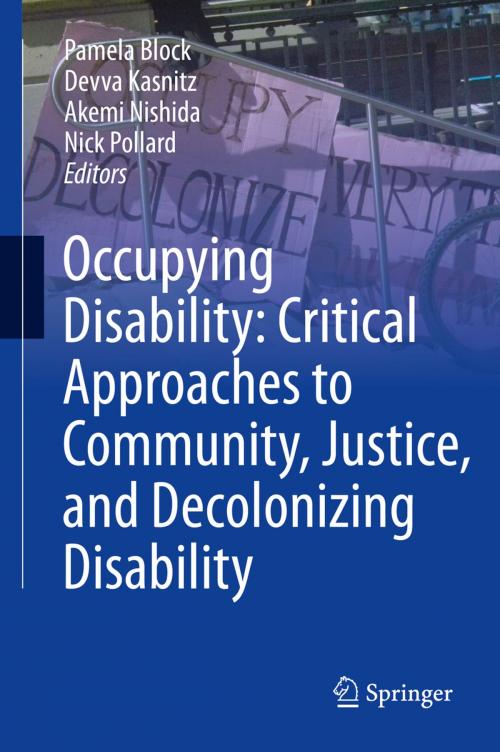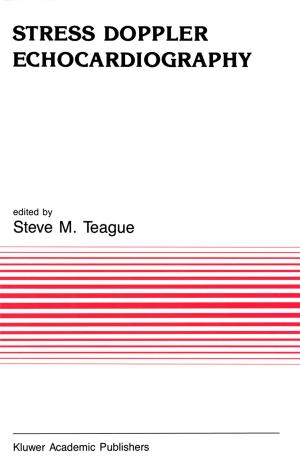Occupying Disability: Critical Approaches to Community, Justice, and Decolonizing Disability
Nonfiction, Health & Well Being, Psychology, Applied Psychology, Social & Cultural Studies, Social Science, Sociology, Medical| Author: | ISBN: | 9789401799843 | |
| Publisher: | Springer Netherlands | Publication: | September 3, 2015 |
| Imprint: | Springer | Language: | English |
| Author: | |
| ISBN: | 9789401799843 |
| Publisher: | Springer Netherlands |
| Publication: | September 3, 2015 |
| Imprint: | Springer |
| Language: | English |
This book explores the concept of "occupation" in disability well beyond traditional clinical formulations of disability: it considers disability not in terms of pathology or impairment, but as a range of unique social identities and experiences that are shaped by visible or invisible diagnoses/impairments, socio-cultural perceptions and environmental barriers and offers innovative ideas on how to apply theoretical training to real world contexts. Inspired by disability justice and “Disability Occupy Wall Street / Decolonize Disability” movements in the US and related movements abroad, this book builds on politically engaged critical approaches to disability that intersect occupational therapy, disability studies and anthropology. "Occupying Disability" will provide a discursive space where the concepts of disability, culture and occupation meet critical theory, activism and the creative arts. The concept of “occupation” is intentionally a moving target in this book. Some chapters discuss occupying spaces as a form of protest or alternatively, protesting against territorial occupations. Others present occupations as framed or problematized within the fields of occupational therapy and occupational science and anthropology as engagement in meaningful activities. The contributing authors come from a variety of professional, academic and activist backgrounds to include perspectives from theory, practice and experiences of disability. Emergent themes include: all the permutations of the concept of "occupy," disability justice/decolonization, marginalization and minoritization, technology, struggle, creativity and change. This book will engage clinicians, social scientists, activists and artists in dialogues about disability as a theoretical construct and lived experience.
This book explores the concept of "occupation" in disability well beyond traditional clinical formulations of disability: it considers disability not in terms of pathology or impairment, but as a range of unique social identities and experiences that are shaped by visible or invisible diagnoses/impairments, socio-cultural perceptions and environmental barriers and offers innovative ideas on how to apply theoretical training to real world contexts. Inspired by disability justice and “Disability Occupy Wall Street / Decolonize Disability” movements in the US and related movements abroad, this book builds on politically engaged critical approaches to disability that intersect occupational therapy, disability studies and anthropology. "Occupying Disability" will provide a discursive space where the concepts of disability, culture and occupation meet critical theory, activism and the creative arts. The concept of “occupation” is intentionally a moving target in this book. Some chapters discuss occupying spaces as a form of protest or alternatively, protesting against territorial occupations. Others present occupations as framed or problematized within the fields of occupational therapy and occupational science and anthropology as engagement in meaningful activities. The contributing authors come from a variety of professional, academic and activist backgrounds to include perspectives from theory, practice and experiences of disability. Emergent themes include: all the permutations of the concept of "occupy," disability justice/decolonization, marginalization and minoritization, technology, struggle, creativity and change. This book will engage clinicians, social scientists, activists and artists in dialogues about disability as a theoretical construct and lived experience.















